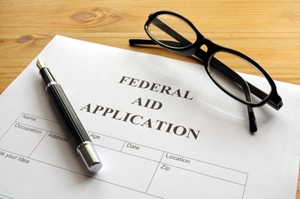
Whether they get employee benefits or buy coverage on their own accord through a private insurer, all Americans will be required to have health insurance by 2014 or they will be hit with a fine. However, because some people may not have the financial means to purchase coverage, the federal government is making subsidies available to those who qualify.
There is some question, though, as to how people can determine whether their earnings make them eligible. To help clarify the issue, Cathy Livingston, a tax specialist who specializes in federal healthcare laws, recently spoke with Kaiser Health News about applying for financial assistance.
Livingston noted that as a general rule, consumers are eligible if their earnings are 400 percent of the federal poverty level. This number changes each year, but it's currently at $46,000 for those who are single and $78,000 for a family of three.
While consumers aren't necessarily compelled to buy coverage, they will face a stiff fine if they don't have a policy in place. Livingston emphasized to KHN that fines are $95 for adults and half that amount for children or 1 percent of the family's income – whichever number is greater. Should families opt not to ever get health coverage, fines will increase with each year they go uncovered.
As for what body will determine who is eligible, that will be considered by the exchange operators, which may be the state government, federal government or a combination of the two. Qualifications will be corroborated by reviewing insureds' last tax return.
Supporters of the Patient Protection and Affordable Care Act are hopeful that few subsidies will be needed. According to the Department of Health and Human Services, premiums in 2014 are expected to be nearly 20 percent lower than they were initially projected to be, mainly as a result of increased competition among insurers.




